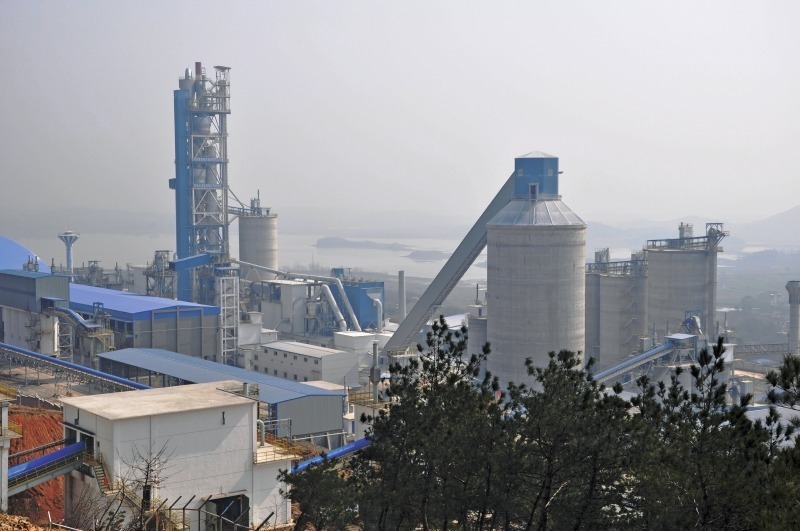Course Details
Your Growth, Our Mission

Course Description
This course provides a comprehensive overview of white cement manufacturing, covering raw materials, production processes, quality control, and applications. It is designed to enhance technical knowledge and operational efficiency for professionals involved in cement production and related industries.
The Training Course Will Highlight ?
Training Objective
By the end of this course, participants will be able to:
-
- Understand the fundamentals of white cement manufacturing, from raw material selection to final product quality.
- Explain the principles of raw material selection and processing to ensure the low iron oxide and manganese oxide content required for white cement.
- Describe the key stages of the manufacturing process, focusing on the unique aspects of the white cement dry process.
- Comprehend the pyroprocessing and clinkerization processes as they apply to white cement, including controlled temperature profiles and fuel selection.
- Analyze and control the quality parameters specific to white cement, such as whiteness, color, and reflectance.
- Identify and apply modern techniques and technologies used to optimize white cement production, including automation and advanced control systems.
- Assess safety, environmental, and sustainability considerations unique to white cement manufacturing, with a focus on waste heat recovery and emission reduction.
- Troubleshoot and resolve common operational issues related to white cement production, ensuring consistent quality and efficiency.
Target Audience
- Process Engineers and Production Managers
- Quality Control and Laboratory Technicians
- Maintenance and Plant Engineers
- Technical Sales and Marketing Professionals
- R&D and Product Development Staff
- New employees in cement manufacturing
Training Methods
This interactive Training will be highly interactive, with opportunities to advance your opinions and ideas and will include:
-
- Lectures
- Workshop & Work Presentation
- Case Studies and Practical Exercise
- Videos and General Discussions
- pre and post assessments
Daily Agenda
Module 1: Introduction to White Cement Manufacturing
- History and evolution of the white cement industry.
- Global market trends and applications of white cement.
- Fundamental principles of white cement production.
- Comparison of white cement manufacturing with grey cement.
Module 2: Raw Materials and Preparation Systems
- Raw Material Selection and Management
- Typical raw materials for white cement (pure limestone, kaolin clay, etc.).
- Emphasis on low iron oxide (Fe2O3) and manganese oxide (MnO2) content.
- Raw material proportion calculations and mix design for whiteness.
- Quality control and analysis of raw materials for color.
- Raw Material Processing Technologies
- Crushing and screening of high-purity raw materials.
- Raw material storage and blending systems to ensure uniform color.
- Raw Milling and Homogenization
- Raw milling systems for fine grinding.
- Homogenization techniques for a consistent raw mix.
Module 3: Pyroprocessing and Clinkerization
- The White Cement Kiln Process
- Focus on the dry process manufacturing system.
- The role of precalciners in modern white cement production.
- Kiln design and operational parameters for maintaining whiteness.
- Combustion and Heat Transfer
- The combustion process and burner technologies adapted for white cement.
- Emphasis on using low-ash fuels (natural gas, oil) to avoid discoloration.
- Temperature control and process optimization to prevent the formation of colored compounds.
- Clinker Formation and Cooling
- White cement clinker formation and the importance of a clear flame.
- Rapid cooling systems for clinker to "freeze" the white color.
- Clinker quality control, including whiteness, color, and mineralogical analysis.
Module 4: Cement Grinding Systems and Dispatch
- Modern Grinding Technologies
- Grinding systems and their optimization for white cement.
- Grinding aids and their impact on cement whiteness.
- Cement Blending and Quality Control
- Cement additives and their functions in white cement.
- Blending technologies and homogenization to ensure a uniform final product.
- Cement inspected and tested in the plant's laboratories for whiteness, color, and strength.
- Packaging and Distribution
- Packaging technologies and automation for white cement.
- Storage and dispatch systems to prevent contamination.
Module 5: Modern Technologies and Automation
- Process Control and Automation Systems
- Implementation of PLC, DCS, and SCADA systems for precise process control.
- Data acquisition and analysis systems to monitor quality in real-time.
- Advanced Control Strategies
- Applying modern control strategies, including predictive control and AI applications, to maintain whiteness.
- Real-time process monitoring and control for consistent product quality.
Module 6: Sustainability and Environmental Management
- Sustainable Production Strategies
- Strategies for reducing emissions and energy consumption.
- Utilization of waste heat recovery and energy efficiency programs.
- Regulatory Compliance
- Environmental regulations and compliance requirements specific to white cement manufacturing.
- Emission standards and monitoring protocols.
Module 7: Safety, Health, and Environment
- Hazard Identification and Risk Assessment
- Identifying hazards and safety measures in cement plants.
- Risk assessment, including dust exposure and noise control.
- Safety Management Systems
- Safety management systems and training programs.
- Emergency response procedures.
Module 8: Case Studies and Industry Best Practices
- Case studies of successful white cement plant operations.
- Industry best practices and benchmarking for whiteness and efficiency.
- Future trends and innovations in the white cement industry.
Accreditation
BTS attendance certificate will be issued to all attendees completing minimum of 80% of the total course duration.
Quick Enquiry
Request Info
Related Courses
Your Growth, Our Mission

